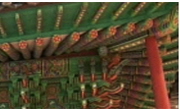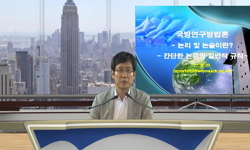The Honest Whore Part 2 by Dekker and Measure for Measure by Shakespeare are comparable in many ways, as both plays dramatize how a society responds to social disruption. Among others, main actions of both plays are triggered by dramatized versions of...
http://chineseinput.net/에서 pinyin(병음)방식으로 중국어를 변환할 수 있습니다.
변환된 중국어를 복사하여 사용하시면 됩니다.
- 中文 을 입력하시려면 zhongwen을 입력하시고 space를누르시면됩니다.
- 北京 을 입력하시려면 beijing을 입력하시고 space를 누르시면 됩니다.
https://www.riss.kr/link?id=A100480748
- 저자
- 발행기관
- 학술지명
- 권호사항
-
발행연도
2014
-
작성언어
Korean
-
주제어
『자에는 자로』 ; 『정숙한 창녀 2부』 ; 지배자 ; 권위 ; 도시 기관 ; Measure for Measure ; The Honest Whore Part 2 ; ruler ; authority ; civic institution
-
등재정보
KCI등재
-
자료형태
학술저널
- 발행기관 URL
-
수록면
687-711(25쪽)
-
KCI 피인용횟수
0
- DOI식별코드
- 제공처
- 소장기관
-
0
상세조회 -
0
다운로드
부가정보
다국어 초록 (Multilingual Abstract)

The Honest Whore Part 2 by Dekker and Measure for Measure by Shakespeare are comparable in many ways, as both plays dramatize how a society responds to social disruption. Among others, main actions of both plays are triggered by dramatized versions of James’s proclamation to clean out the London suburbs right after his ascension to the English throne in 1603. In addition, both of them represent sexual transgression as a primary cause of social disorder. However, the ways each play tackles the social problems are quite different. At the center of the difference lies how each ruler’s authority is constructed and exerted. Shakespeare’s duke is a ruler with absolute power and at the center of every authority in the state. His concern is keeping his subjects and country in order. Even if his authority is sometimes problematized, there is no denying that he is an efficient ruler building an absolute authority by his own means and maneuvers. On the other hand, Dekker’s duke is close to a Machiavellian ruler in that he wields his power more arbitrarily to further his daughter’s interests. Orlando Friscobaldo, an ordinary civilian, takes his place and plays the part of problem-solver by disguising himself, coordinating the relationship among characters, and distributing rewards and punishments according to their virtue and misdeeds. However, his solution must be finally ratified by a ruler with supreme power. Interestingly, Dekker implies that a ruler’s authority must be supported by a civic institution as well as his subjects’ integrity by setting his final scene in Bridewell, a civic house of correction. In summary, the difference in the characterization of dukes helps audience to understand Shakespeare’s and Dekker’s ideological orientation towards the way social problems of their age should be tackled.
목차 (Table of Contents)
- Ⅰ. 제임스 1세의 교외 일소령(1603년)의 극화
- Ⅱ. 지배자의 권위?빈센시오와 트레밧찌
- Ⅲ. 사회의 질서 회복을 위한 군주의 역할
- 인용문헌
- Abstract
- Ⅰ. 제임스 1세의 교외 일소령(1603년)의 극화
- Ⅱ. 지배자의 권위?빈센시오와 트레밧찌
- Ⅲ. 사회의 질서 회복을 위한 군주의 역할
- 인용문헌
- Abstract
참고문헌 (Reference)
1 이미영, "『자에는 자로』: 권위를 문제 삼은 '문제극'" 한국셰익스피어학회 40 (40): 913-931, 2004
2 Mulholland, Paul, "Thomas Middleton: The Collected Works" Clarendon Press 280-285, 2007
3 Howard, Jean E, "Theatre of a City: The Places of London Comedy, 1598-1642" U of Pennsylvania P 2007
4 Dekker, Thomas, "The Wonderful Year. Three Elizabethan Pamphlets" George G. Harrap 160-207, 1951
5 Manheim, Michael, "The Thematic Structure of Dekker’s 2 Honest Whore" 5 (5): 363-381, 1965
6 Mullaney, Steven, "The Place of the Stage: License, Play, and Power in Renaissance England" U. of Michigan P 1995
7 Williamson, Marilyn, "The Patriarchy of Shakespeare’s Comedies" Wayne State UP 1986
8 Finlay, Roger, "The Making of the Metropolis: London 1500-1700" Longman 37-59, 1986
9 Slack, Paul, "The Making of the Metropolis: London 1500-1700" Longman 60-81, 1986
10 Dekker, Thomas, "The Honest Whore I & II. London: John Pearson York Street Covent Garden, 1873" Kessinger Legacy 1873
1 이미영, "『자에는 자로』: 권위를 문제 삼은 '문제극'" 한국셰익스피어학회 40 (40): 913-931, 2004
2 Mulholland, Paul, "Thomas Middleton: The Collected Works" Clarendon Press 280-285, 2007
3 Howard, Jean E, "Theatre of a City: The Places of London Comedy, 1598-1642" U of Pennsylvania P 2007
4 Dekker, Thomas, "The Wonderful Year. Three Elizabethan Pamphlets" George G. Harrap 160-207, 1951
5 Manheim, Michael, "The Thematic Structure of Dekker’s 2 Honest Whore" 5 (5): 363-381, 1965
6 Mullaney, Steven, "The Place of the Stage: License, Play, and Power in Renaissance England" U. of Michigan P 1995
7 Williamson, Marilyn, "The Patriarchy of Shakespeare’s Comedies" Wayne State UP 1986
8 Finlay, Roger, "The Making of the Metropolis: London 1500-1700" Longman 37-59, 1986
9 Slack, Paul, "The Making of the Metropolis: London 1500-1700" Longman 60-81, 1986
10 Dekker, Thomas, "The Honest Whore I & II. London: John Pearson York Street Covent Garden, 1873" Kessinger Legacy 1873
11 Dollimore, "Shakespeare, Cultural Materialism, Feminism and Marxist Humanism" 21 (21): 471-493, 1990
12 Tennenhouse, Leonard, "Power on Display: The Politics of Shakespeare’s Genres" Methuen 1986
13 Dollimore, Jonathan, "Political Shakespeare: New Essays in Cultural Materialism" Manchester UP 72-87, 1985
14 Lever, J. W, "Measure for Measure. The Arden Shakespeare" Methuen 11-98, 1965
15 Shakespeare, William, "Measure for Measure" Methuen 1965
16 Twyning, John, "London Dispossessed: Literature and Social Space in the Early Modern City" St Martin’s 1998
17 Hoy, Cyrus, "Introductions, Notes, and Commentaries to Texts in The Dramatic Works of Thomas Dekker" Cambridge UP 1979
18 Champion, Larry S, "From Melodrama to Comedy: A Study of the Dramatic Perspective in Dekker’s The Honest Whore, Part I and II" 69 (69): 192-209, 1972
19 Griffiths, Paul, "Contesting London Bridewell, 1576-1580" 42 (42): 283-315, 2003
20 Howard, Jean E., "A Companion to Shakespeare" Blackwell 297-310, 1999
21 Archer, Ian, "A Companion to Renaissance Drama" Blackwell 68-82, 2002
동일학술지(권/호) 다른 논문
-
- 한국셰익스피어학회
- 김미예(Miye Kim)
- 2014
- KCI등재
-
슐레겔(August W. Schlegel)의 셰익스피어 비평
- 한국셰익스피어학회
- 김종환(Jong-hwan Kim)
- 2014
- KCI등재
-
플라톤의 에로스 신화에 나타난 사랑의 상승구조와 기억 그리고 셰익스피어의 소네트 읽기
- 한국셰익스피어학회
- 이경옥(Kyung Ook Lee)
- 2014
- KCI등재
-
- 한국셰익스피어학회
- 이혜경(Hye Kyoung Lee)
- 2014
- KCI등재
분석정보
인용정보 인용지수 설명보기
학술지 이력
| 연월일 | 이력구분 | 이력상세 | 등재구분 |
|---|---|---|---|
| 2027 | 평가예정 | 재인증평가 신청대상 (재인증) | |
| 2021-01-01 | 평가 | 등재학술지 유지 (재인증) |  |
| 2018-01-01 | 평가 | 등재학술지 유지 (등재유지) |  |
| 2015-01-01 | 평가 | 등재학술지 유지 (등재유지) |  |
| 2011-01-01 | 평가 | 등재학술지 유지 (등재유지) |  |
| 2009-01-01 | 평가 | 등재학술지 유지 (등재유지) |  |
| 2007-01-01 | 평가 | 등재학술지 유지 (등재유지) |  |
| 2004-01-01 | 평가 | 등재학술지 선정 (등재후보2차) |  |
| 2003-01-01 | 평가 | 등재후보 1차 PASS (등재후보1차) |  |
| 2002-01-01 | 평가 | 등재후보학술지 유지 (등재후보1차) |  |
| 1999-07-01 | 평가 | 등재후보학술지 선정 (신규평가) |  |
학술지 인용정보
| 기준연도 | WOS-KCI 통합IF(2년) | KCIF(2년) | KCIF(3년) |
|---|---|---|---|
| 2016 | 0.12 | 0.12 | 0.14 |
| KCIF(4년) | KCIF(5년) | 중심성지수(3년) | 즉시성지수 |
| 0.12 | 0.11 | 0.561 | 0.03 |




 KCI
KCI DBpia
DBpia







